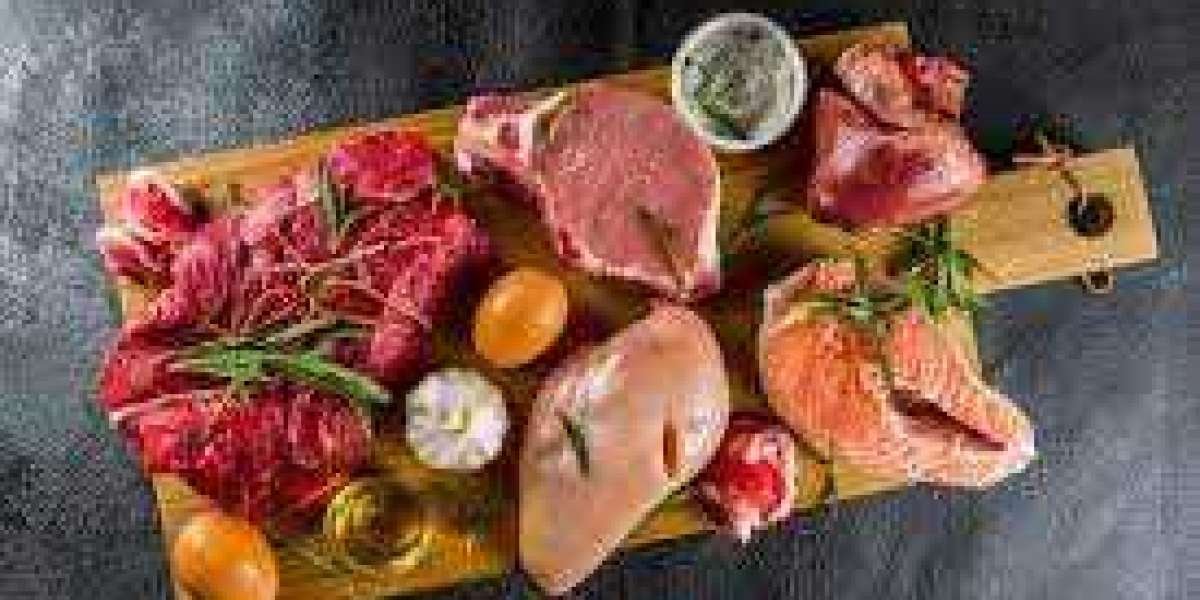The carnivore diet is an all-animal food diet that eliminates all plant-based foods, including fruits, vegetables, grains, and legumes. While it may seem restrictive, many people who follow this diet report significant benefits such as weight loss, increased energy, improved mental clarity, and reduced inflammation. If you’re considering the carnivore diet and need guidance on what to eat, this meal plan will provide you with a variety of options for each meal to help you get started on the right track.
What is the Carnivore Diet?
The carnivore diet consists exclusively of animal-based foods, which includes:
- Meat: Beef, pork, lamb, chicken, turkey, and other animal proteins
- Fish and seafood: Salmon, sardines, mackerel, shrimp, and other ocean-based foods
- Eggs: Whole eggs from any animal, including chicken, duck, and quail
- Animal fats: Butter, lard, ghee, tallow, and other rendered fats
- Organ meats: Liver, kidneys, heart, and other nutrient-dense animal parts
It’s important to note that the carnivore diet is extremely low in carbohydrates and fiber, which can be challenging for some individuals. However, many proponents of the diet believe that human beings can thrive on animal foods alone, especially since they are rich in protein, fat, vitamins, and minerals.
Carnivore Diet Meal Plan: A Week’s Worth of Meals
Below is a sample 7-day meal plan to help you get started with the carnivore diet. This meal plan includes breakfast, lunch, and dinner options, along with snacks for some variety.
Day 1
- Breakfast: Scrambled eggs cooked in butter with bacon
- Lunch: Grilled ribeye steak with a side of pork belly
- Dinner: Pan-fried salmon with a generous portion of chicken thighs
- Snack: Beef jerky or a hard-boiled egg
Day 2
- Breakfast: Two fried eggs and a side of ground beef
- Lunch: Grilled pork chops with a side of beef liver (rich in vitamins)
- Dinner: Roast chicken with crispy skin and a side of shrimp
- Snack: Pork rinds or a small serving of bone broth
Day 3
- Breakfast: Omelet made with eggs and leftover steak
- Lunch: Grilled lamb chops with a side of beef heart
- Dinner: Baked trout with butter and a side of ground lamb
- Snack: Smoked salmon or beef sticks
Day 4
- Breakfast: Steak and eggs (2 eggs scrambled with leftover steak)
- Lunch: Pan-seared duck breast with a side of grilled shrimp
- Dinner: Beef stew made with bone broth and a variety of cuts of beef (including shank, chuck, or oxtail)
- Snack: Chicken wings or pork belly
Day 5
- Breakfast: Sausage and scrambled eggs cooked in animal fat
- Lunch: Grilled beef short ribs with a side of grilled fish (such as sardines)
- Dinner: Roast leg of lamb with a side of pork ribs
- Snack: A couple of boiled eggs or a slice of cold cuts like salami or pastrami
Day 6
- Breakfast: Hard-boiled eggs with a side of beef bacon
- Lunch: Pan-fried steak with a side of ground beef patties
- Dinner: Grilled swordfish with roasted duck
- Snack: Beef jerky or pork rinds
Day 7
- Breakfast: Fried eggs with leftover roast chicken
- Lunch: Grilled salmon fillets with a side of ground lamb
- Dinner: Baked chicken thighs with a side of beef liver
- Snack: A few slices of jerky or bone marrow
Tips for Success on the Carnivore Diet
Eat Enough Fat: Since the carnivore diet is high in fat, it’s essential to consume enough fat to maintain energy levels. Fatty cuts of meat like ribeye steaks, pork belly, and chicken thighs will help you meet your caloric needs and keep you satisfied longer.
Focus on Quality: Try to choose high-quality, grass-fed, or pasture-raised meats and wild-caught seafood when possible. These options are more nutrient-dense and free from antibiotics and hormones commonly found in factory-farmed products.
Experiment with Organ Meats: Organ meats, such as liver, heart, and kidneys, are incredibly nutrient-dense and are often considered some of the healthiest animal-based foods. They are rich in vitamins and minerals, including vitamin A, iron, and B vitamins.
Stay Hydrated: Since the carnivore diet is low in carbohydrates, your body may initially excrete excess water. It’s important to stay hydrated throughout the day, especially in the early stages of the diet. Drinking plenty of water, herbal tea, or bone broth can help keep your electrolytes balanced.
Use Animal Fats for Cooking: Animal fats like lard, tallow, and butter are excellent for cooking. They add flavor, and they are rich in healthy saturated fats, which are the main energy source on the carnivore diet.
Listen to Your Body: While the carnivore diet can work wonders for many, it may not be suitable for everyone. Pay attention to how your body feels as you make the transition to this diet. If you experience digestive issues or extreme fatigue, consider adjusting your food choices or consulting a healthcare professional.
Potential Challenges of the Carnivore Diet
While the carnivore diet can be effective for weight loss and improving health markers, it can also present several challenges:
- Lack of Variety: Since the diet restricts all plant foods, it can be difficult to maintain variety and excitement in your meals, leading to potential boredom.
- Nutrient Deficiencies: By eliminating all fruits and vegetables, the carnivore diet may lead to nutrient deficiencies over time, particularly in fiber, vitamin C, and other micronutrients. Supplementation may be necessary for some individuals.
- Social and Lifestyle Restrictions: Following the carnivore diet can be challenging in social settings or when dining out, as most restaurants and social gatherings feature a wide range of plant-based foods.
Conclusion
The carnivore diet meal plan is a simple, meat-based eating approach that offers several benefits, including weight loss, improved mental clarity, and reduced inflammation. With a focus on animal products such as beef, pork, chicken, fish, and eggs, the carnivore diet can help you achieve your health goals while reducing reliance on carbohydrates and processed foods.
By following the sample meal plan provided, you can easily navigate the carnivore diet and start your journey toward better health. As with any restrictive diet, it’s important to listen to your body and consult with a healthcare provider if you have concerns about nutrient deficiencies or any pre-existing health conditions. With careful planning and commitment, the carnivore diet can be an effective tool for achieving lasting weight loss and overall wellness.








